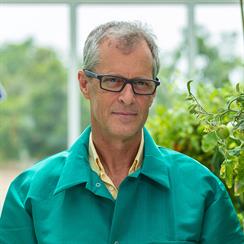
Mark Tester
Professor, Plant Science
Biological and Environmental Science and Engineering Division
Through discovery of plant adaptations to marginal environments, we aim to improve sustainable crop production in suboptimal conditions.
Program Affiliations
Center of Excellence
Biography
Mark Tester is a Professor of Plant Science at KAUST, Chair of the Center of Excellence for Sustainable Food Security and co-Founder of RedSea LLC (now iyris). In 2019, he was Head of the Food Sector at NEOM. Prior to joining KAUST in February 2013, he was an ARC Federation Fellow and Professor of Plant Physiology at the University of Adelaide, Australia, where he established The Plant Accelerator. Previously, he was a Senior Lecturer at the University of Cambridge, U.K., where he also received his Ph.D. in 1988. Professor Tester is now focused on using plant science in combination with other technologies to increase sustainability of food production.
Research Interests
Professor Tester leads a research program on salinity tolerance in plants, and in delivering commercially the outcomes of that research in his private company, founded as Red Sea Farms (now iyris). His aspiration is to unlock seawater by developing a new economically viable agricultural system where salt-tolerant crops are irrigated with partially desalinized seawater or brackish groundwater. A particular strength of Professor Tester’s research program is the integration of genetics and genomics with a breadth of physiological approaches to enable novel gene discovery. In the process of delivering his research, Professor Tester developed a method for creating new types of hybrid allotetraploid rootstocks that enable the rapid stacking of multiple tolerance traits in crop plants. Patents covering this were published in 2024. The impacts of these rootstocks on yield in the field are considerable and his materials are now being adopted by some of the largest agricultural companies in the world. More recently, he has been able to support others in the delivery of their discoveries through his position as Director of the Center of Excellence for Sustainable Food Security.
Education Profile
Ph.D., Plant Sciences, University of Cambridge, U.K., 1988
B.Sc., Plant Sciences, University of Adelaide, Australia, 1984

